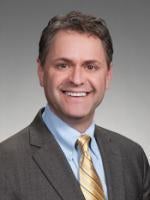Here is a quick quiz. Who is more likely to guess or speculate about something they don't know, a novice or a trained expert? While we would like to think that the uninformed novice is more likely to make things up, the surprising answer is that it's actually the expert. A new study (Atir, Rosenzweig, & Dunning, 2015) finds that those with a high-level of self-perceived expertise are more likely to exaggerate their own knowledge and to claim to be familiar with concepts that are simply made-up by the researcher. Once someone thinks they're an expert in a given field, they are motivated to present themselves as knowledgeable, even to the point of saying that they know things they cannot possibly know. In other words, their own perceived expertise gives them enough confidence to feel that it's okay to B.S. a bit. The average nonexpert probably has a motivation to B.S. a bit when pressed as well. But it might be a little disconcerting to learn that the expert is more rather than less likely to give in to that temptation. Noting the irony, Jeremy Dean in Psyblog notes, "The more people think they know about a topic, the more likely they are to claim that totally made-up facts are true."
So what does that say about expert witnesses in trial and discovery? In that context, we are used to the perception, at least of a kind of "motivated dishonesty," where experts will lean toward what the paying client wants to hear. But we might be less familiar with the forms of unconscious dishonesty that can simply arise out of the arrogance of perceived expertise. If experts have a psychological bias that leads them to stray from their own expertise, that poses a practical problem for expert testimony. This post will take a look at the study on expert's tendency to make things up, and also share some thoughts on some of the mental reminders and commitments that expert witnesses should apply in order to avoid it.
The Research: Expertise Breeds Error
A research team from Cornell and Tulane looked at the relationship between expertise and the willingness to overclaim knowledge. Looking at several specific domains of knowledge, they measured both actual and perceived knowledge, then gave participants a quiz. Those who had expertise in the personal finance domain, for example, were shown a list of financial terms: most were real, but three ("pre-rated stocks," "fixed-rate deduction," and "annualized credit") were made up by the research team. Those who had personal finance expertise were more likely to claim to know about these fictional concepts. The same effect was observed in the four other domains tested -- biology, literature, philosophy, and geography. Those with high expertise were significantly more likely to claim knowledge of the fictitious concepts.
Interestingly, giving these experts a warning that some of the concepts they would hear were fictitious did not reduce the amount of error. The effect was also domain specific: Once outside their area of expertise, the experts were less likely to overclaim their knowledge. Finally, proving that the effect derived from the self-perception of expertise, the researchers built in a manipulation to boost the self-perceived expertise of subjects and found that this further increased the chances of overclaiming. As the study's first author, Stav Atir of Cornell University noted, "Our work suggests that the seemingly straightforward task of judging one's knowledge may not be so simple, particularly for individuals who believe they have a relatively high-level of knowledge to begin with."
The Advice: Keep Your Perceived Expertise in Bounds
For witnesses of all kinds, one of your chief assets is confidence. For experts in particular, a clear and unshakable confidence within the scope of your own testimony is essential. But the key phrase there is "Within the scope of your own testimony." The lesson is to stay in that box. Be fully candid, clear, and confident within that box, but stay inside. If experts are lured outside the protective zone composed of their own analysis and conclusions, then speculation results. And the result of speculation, in the hands of good cross-examination, will be a loss in credibility.
The other side is motivated to find ways to reduce your credibility, and one good way is to lure you out of your domain and encourage you to engage in the kinds of overclaiming demonstrated in this study. So as an expert, one thing you need to do is make sure you're keeping your arrogance in check. And it isn't just the display of arrogance -- the haughty condescension that can turn off a jury -- it's also the internal voice, the "I'm supposed to know this" attitude that can lead you to error. Policing those boundaries is the expert's job, with counsel's help. The limits will vary with each case, but here is a general motto that experts should follow:
I'll stick to...
My area of expertise. There's no such thing as an all-around expert. As an expert you're limited by your field. If opposing counsel -- or even your own counsel -- invites you to opine on an area outside your experience and training, answer with a simple "That's not my area of expertise."
My scope of review. No, you didn't read everything. It is counsel's job, not yours, to justify the completeness of what you were given to review. So be fully confident that you're offering a sound opinion based on what you reviewed, and make no apologies for what you didn't review.
My report and deposition. The court will likely help you with this one, but it helps if this barrier is an internal one as well. You can explain, illustrate, and justify what you included in your written report or deposition, but barring the unusual circumstance, you won't have cause to go beyond that.
My own ability to explain, support and teach. Ultimately, it helps to remember that you're there to be a teacher, not to be a stamp of authority. The implication of "Because I said so, and because I'm an expert" will almost never be convincing to a jury. Instead, they want to see you illustrate, prove, and teach your conclusions.
Ultimately, this advice boils down to a maxim that is simple, but still too-often ignored. If you don't know, then the answer is "I don't know." Be prepared to say that, and practice saying it in your preparation sessions. As long as you're confident and clear in what you do know, and as long as you're showing yourself to be useful to the jury, go ahead and mark in "I don't know" along the boundaries of your own knowledge and expertise. It won't threaten your credibility, it will protect it.



 />i
/>i
